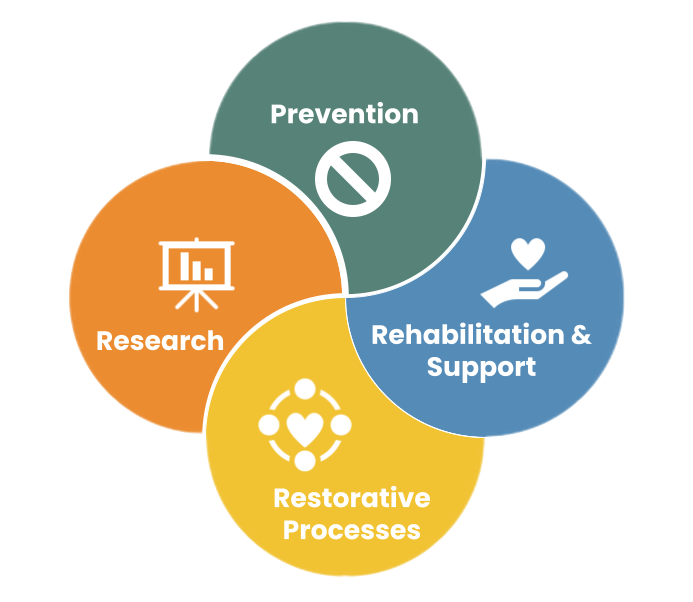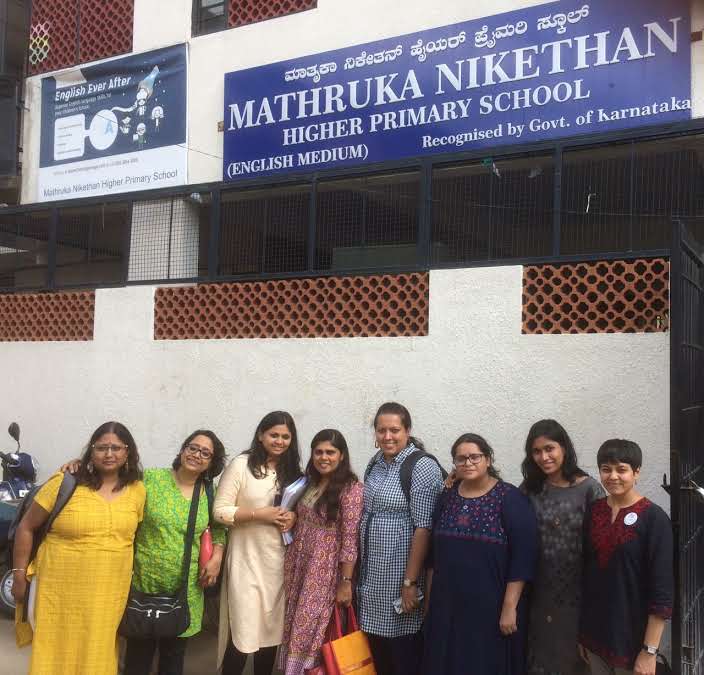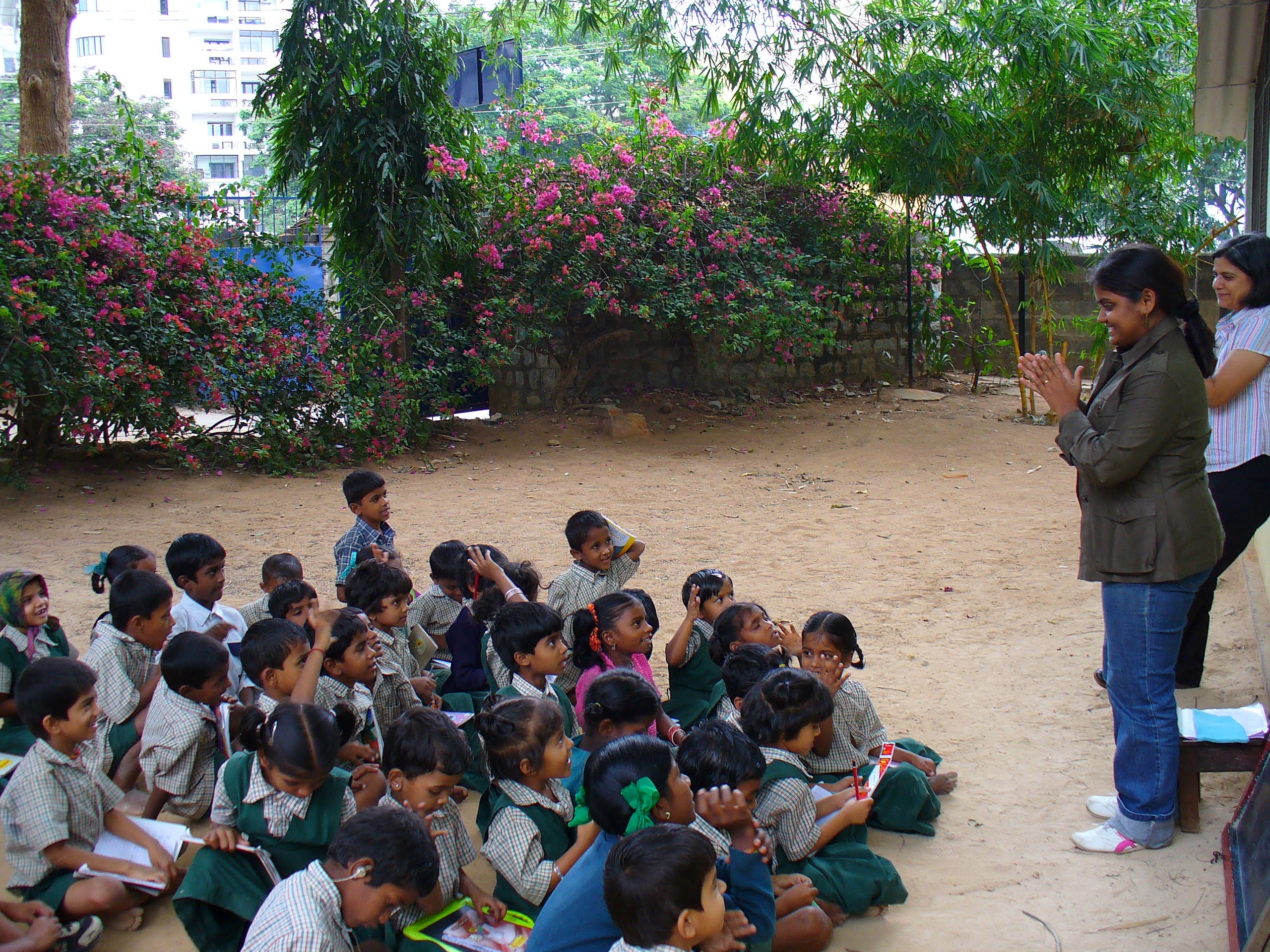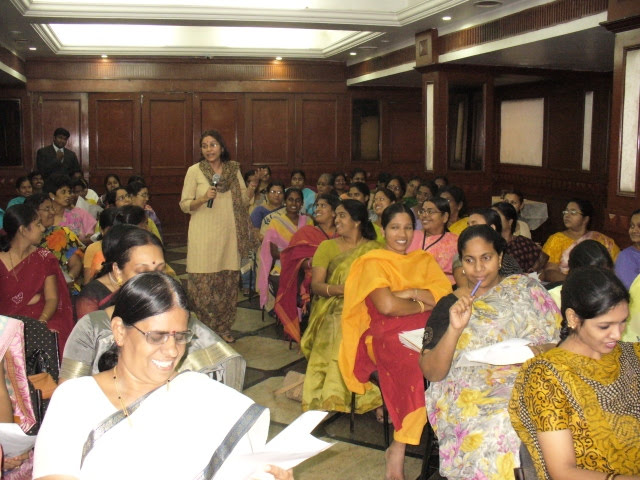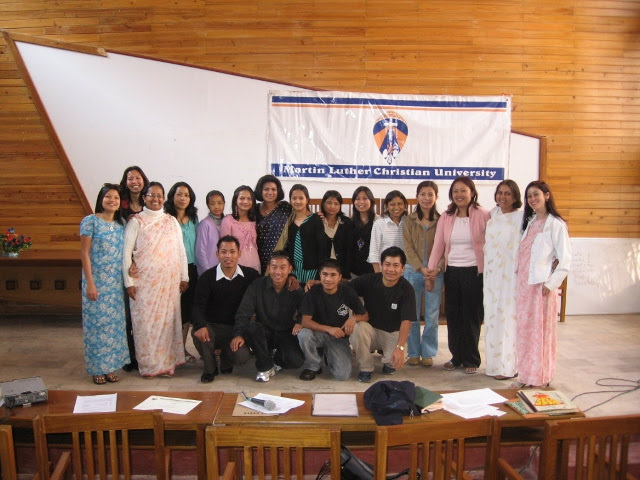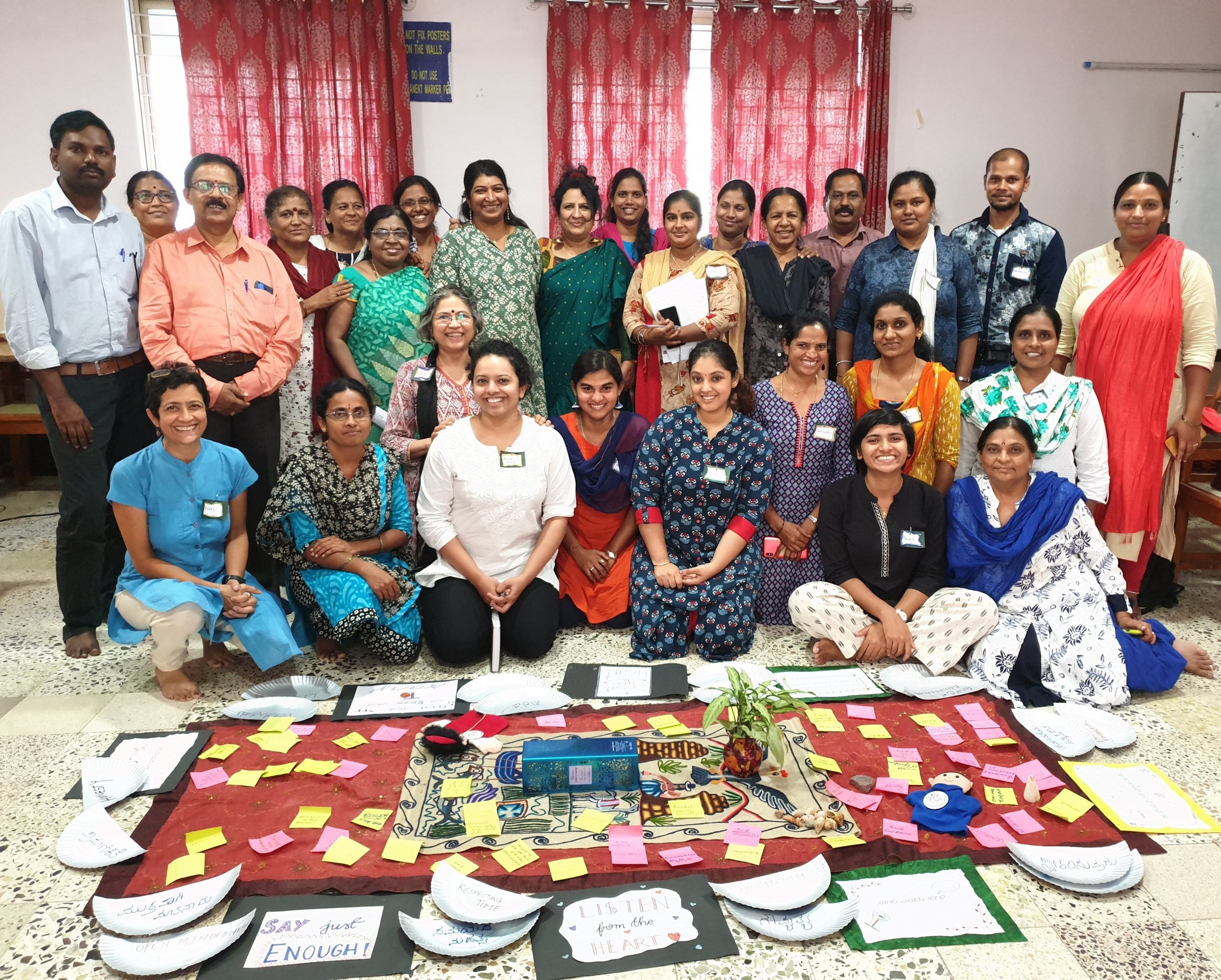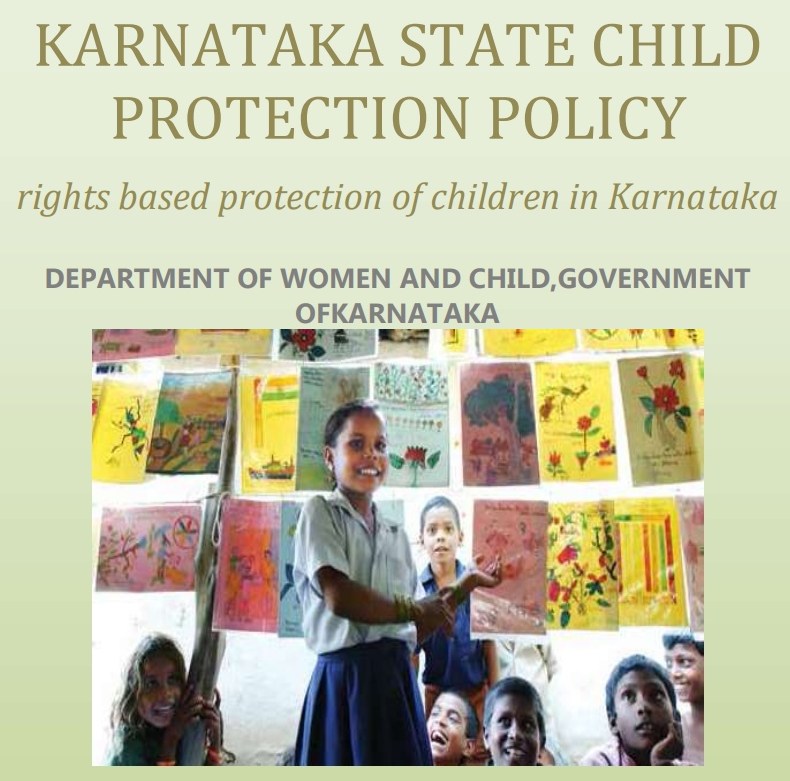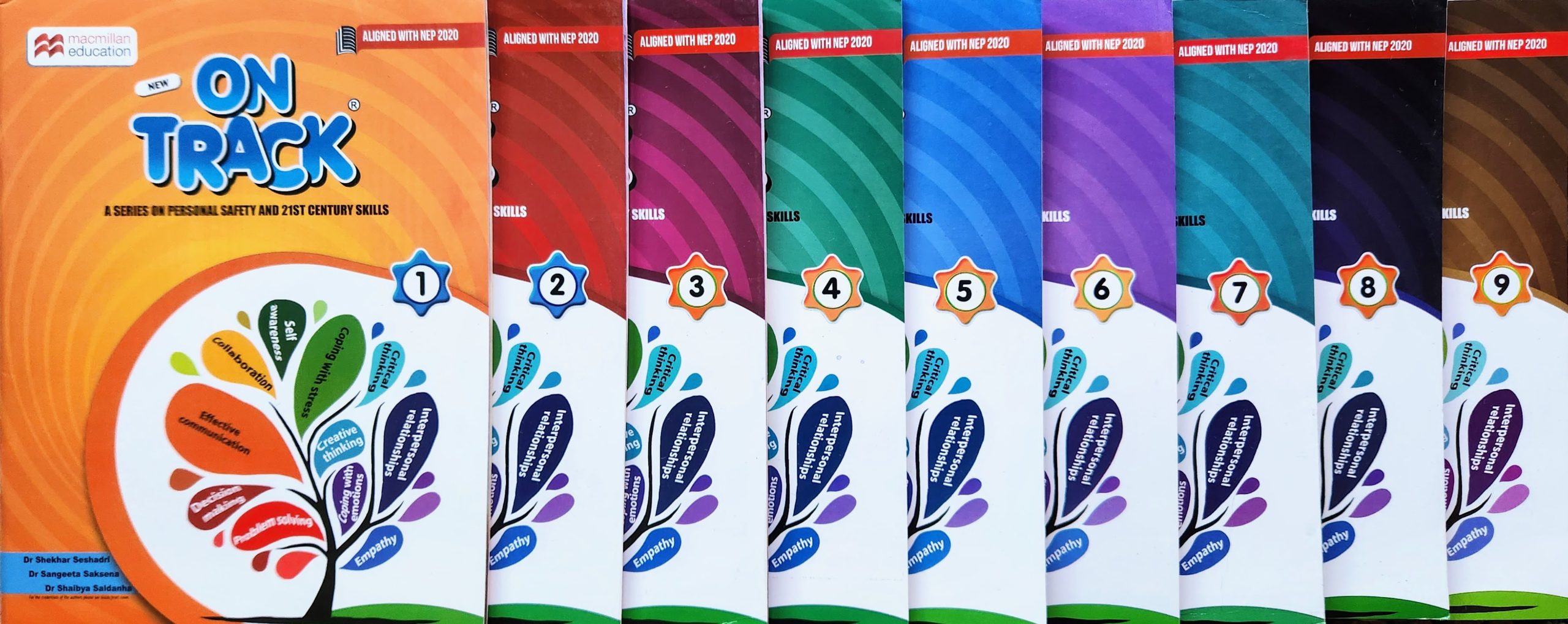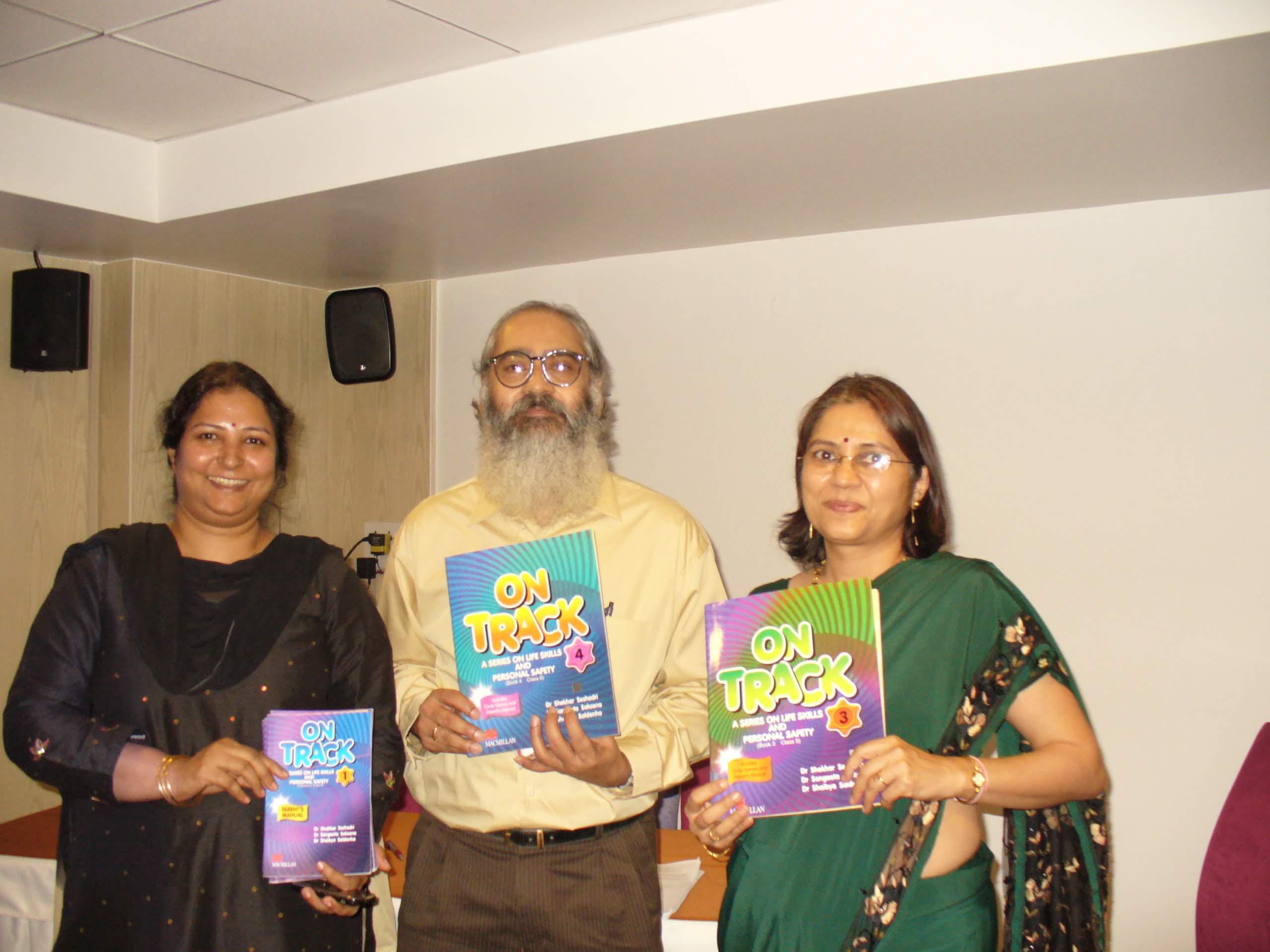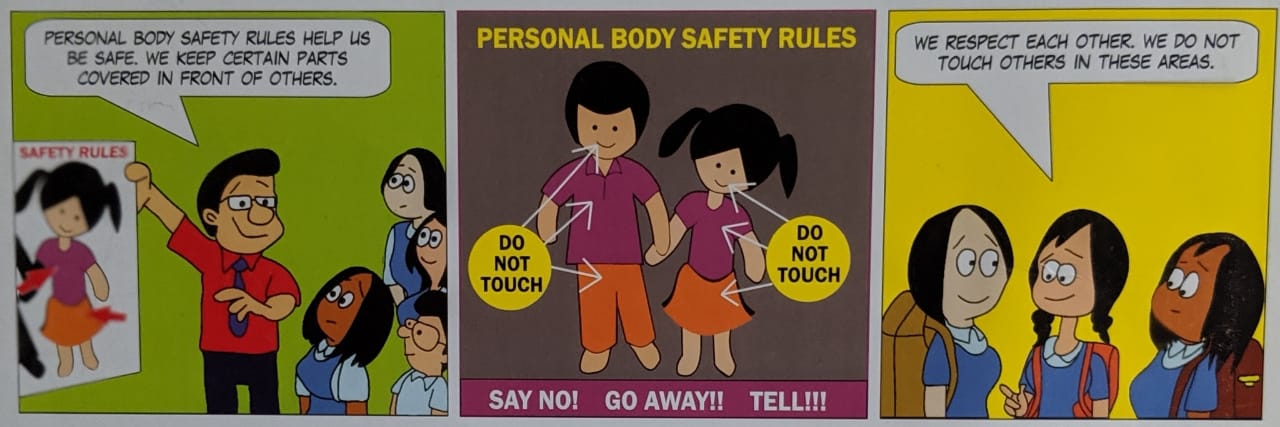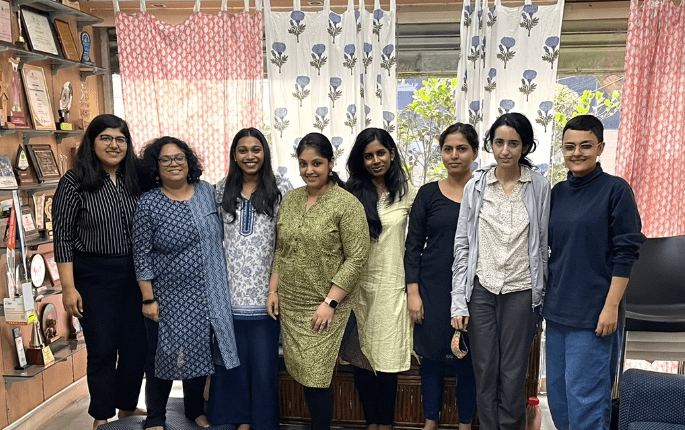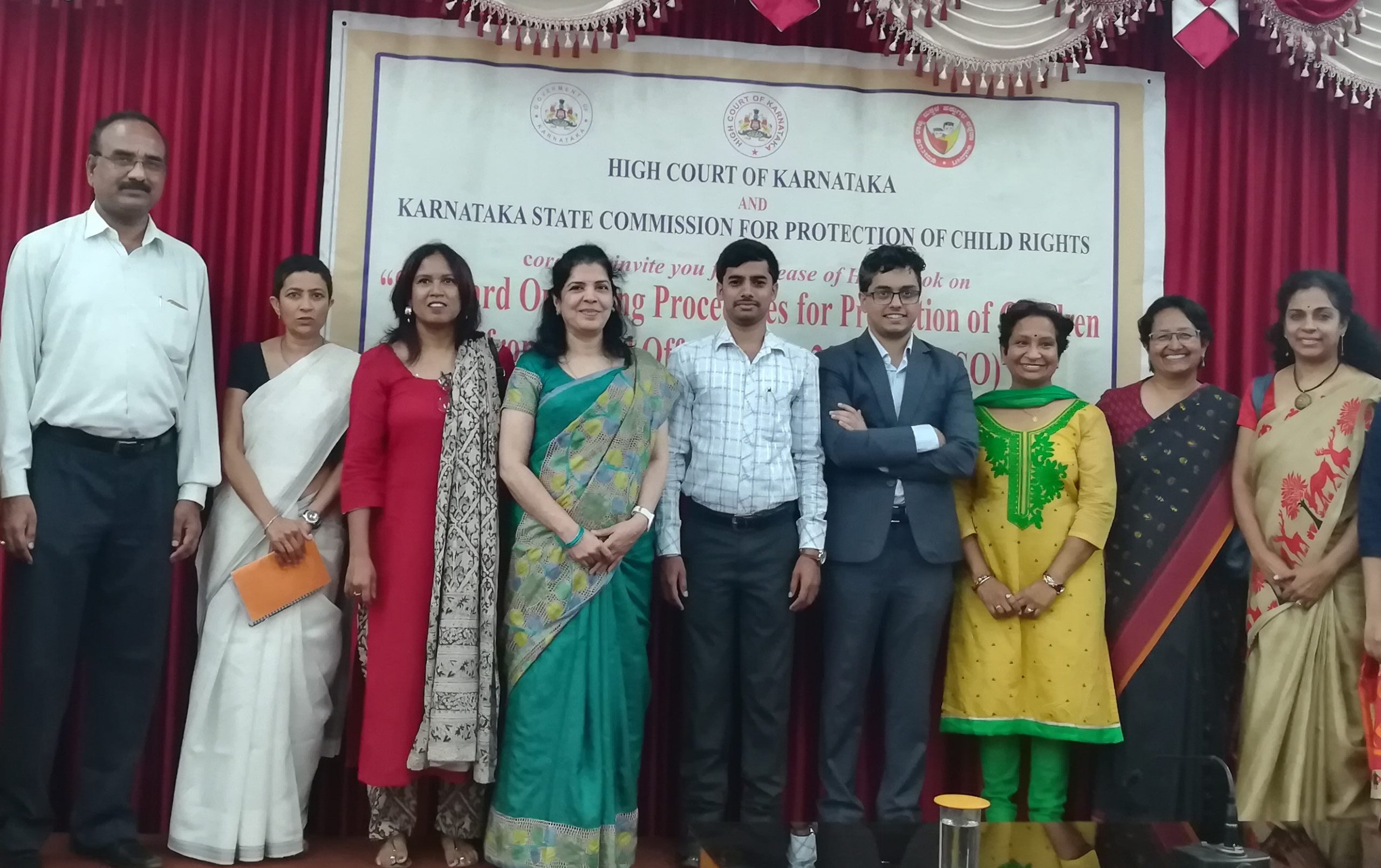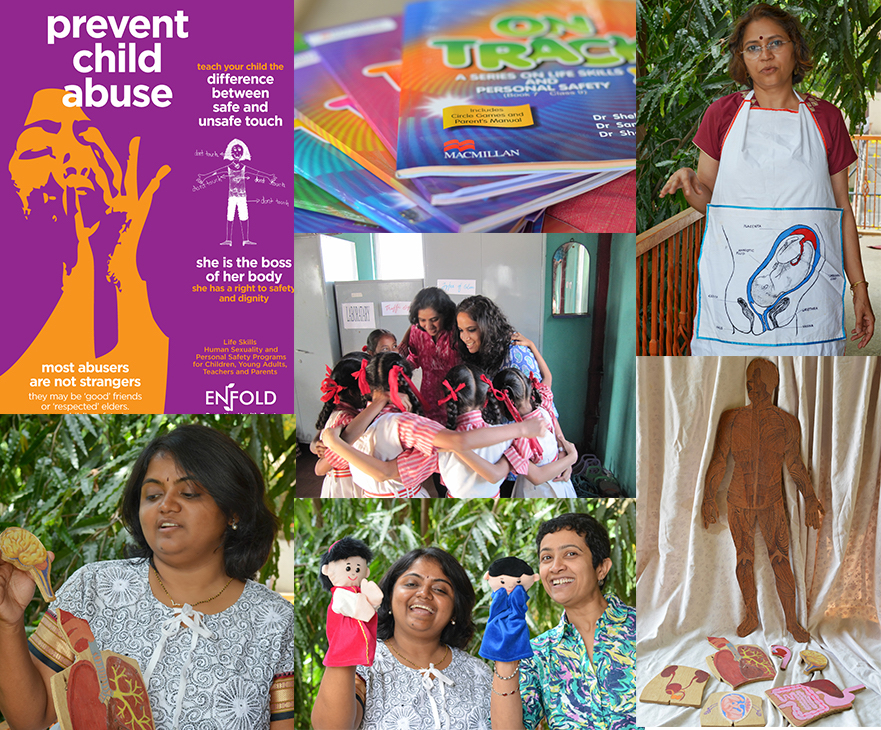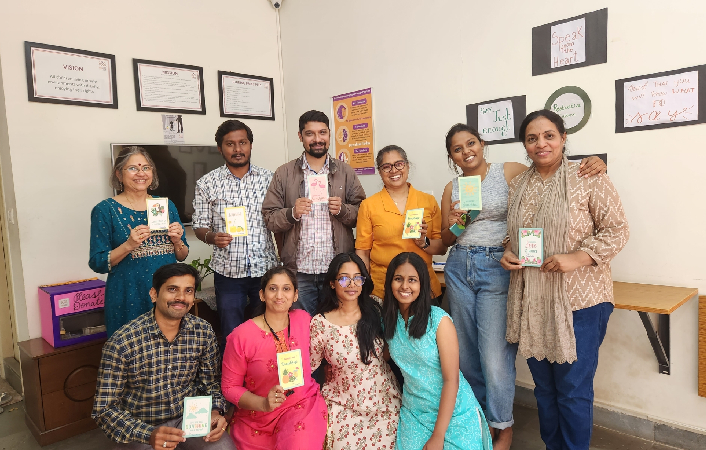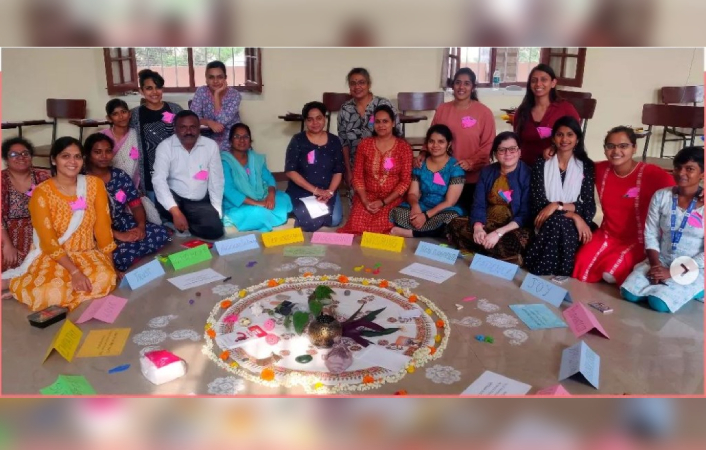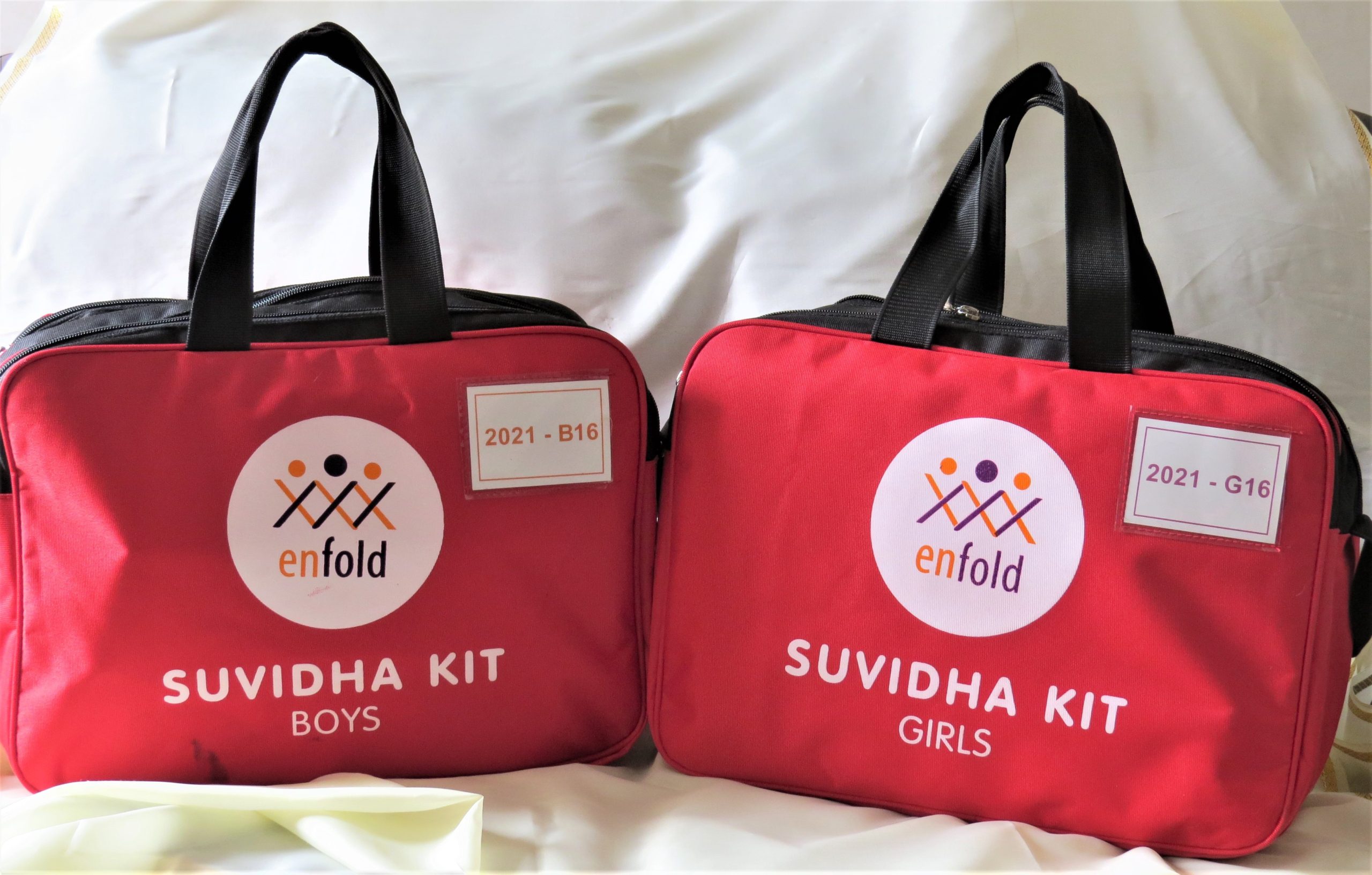Programs for Schools/NGOs
Enfold offers a 360 degree Program for all stakeholders in a school – sessions for students, workshops for teaching and non-teaching staff and parents; and safety systems and audits for the management.
The prime focus of these programs is enhancing the physical, emotional and sexual safety of students. For details please click on the program of your interest.
The Need
A national study on child abuse (Kacker et al., 2007), released by the Ministry of Women and Child Development, New Delhi, found that 53% of the 12,447 children interviewed had experienced some form of sexual abuse. It was also found that a majority of the perpetrators were known to the child survivor. Researchers in India estimate that between 18% and 50% of the country’s population may have experienced some form of sexual abuse in their lifetime (Carson et al., 2014).
Children are also socialised into norms, stereotypes, and roles associated with their gender. This biased differential treatment also affects those children who discover or realise that their gender identity falls out of the binary system. A system of rewards and punishment communicates to them what is allowed and what isn’t in a patriarchal and heteronormative society.
The Premise
Children have the right to safety and to live with dignity. We believe that children have the capacity to recognize and report sexual abuse, and can heal emotionally if helped in a professional manner. Information and discussion on sexuality and gender equity can help children learn respectful sexual behaviour without associating shame or stigma with the genitals, and be more gender equitable in their day-to-day interactions. They would feel more confident in identifying and speaking out against abuse, including sexual abuse. It would also help adolescents navigate puberty in a healthy, safe and dignified manner.
The WHO (2018), in recommending Comprehensive Sexuality Education, provided a list of the following benefits:
There is significant evidence on the impact of sexuality education. It emphasises that:
- Sexuality education has positive effects, including increasing young people’s knowledge and improving their attitudes related to sexual and reproductive health and behaviors.
- Sexuality education – in or out of schools – does not increase sexual activity, sexual risk-taking behaviour or STI/HIV infection rates.
- Programmes that promote abstinence as the only option have been found to be ineffective in delaying sexual initiation, reducing the frequency of sex or reducing the number of sexual partners. Programmes that combine a focus on delaying sexual activity with other content are effective.
- ‘Gender-focused’ programmes are substantially more effective than ‘gender-blind’ programmes at achieving health outcomes such as reducing rates of unintended pregnancy or STIs.
- Sexuality education has the most impact when school-based programmes are complemented with the involvement of parents and teachers, training institutes, and youth-friendly services.
Developing the curriculum – basis, and principles
From its inception in 2001, Enfold has developed its own content and methodology to facilitate learning in the area of sexuality and personal safety, basing it on life skills like self-awareness and empathy. The team kept its content culturally relevant, age-appropriate, scientific, and values-based, and developed a curriculum on Gender Equity, Sexuality, and Personal Safety education for grades 1 through 12 in 2002. In 2015 this was translated into Kannada with support from UNICEF. The curriculum has evolved over the years to emphasise a rights-based, intersectional, restorative, and gender-transformative approach.
Enfold follows International Conventions and National Laws and Policies
The principles of the United Nations Convention on the Rights of the Child (ratified by India in 1992) include:
- Best Interest of Child.
- Principle of Safety.
- Confidentiality.
- Child Participation.
- Equality and Non Discrimination
Enfold promotes gender equity, sexuality, and personal safety education with the aim of creating safer spaces and preventing sexual and gender-based violence against children and adults.
We offer a 360-degree program for all stakeholders in a school. All workshops described here address one or more of the topics mentioned with the objective of creating greater awareness and the skill to address issues arising from them.
Awareness/ Capacity Building Programs
For school students
Very few schools in India offer comprehensive sexuality education. According to UNESCO, this education enables young people to protect and advocate for their health, well-being, and dignity by providing them with a necessary toolkit of knowledge, attitudes, and skills. Studies show that contrary to common belief, it does not trigger sexual behaviour. It actually delays sexual activity and promotes responsible sexual behaviour. Though the 2013 Report of the Committee on Amendments to Criminal Law and the CBSE Handbook on 21st Century Skills 2020 recommend this education, it has not yet become a part of the school curricula.
Gender Equity, Sexuality and Personal Safety Program for School Students
Enfold’s Gender Equity, Sexuality and Personal Safety program – using Life Skills and Restorative Approaches is offered to children from grade 1 through grade 12 as a part of a school-based prevention and personal safety series. The curriculum has been designed age appropriately and expands to meet the increasing safety needs of children as they grow. The prime focus is enhancing the physical, emotional and sexual safety of students, through a unique, scientific and value based approach developed by Enfold’s Founders Dr Sangeeta Saksena and Dr Shaibya Saldanha. This unique program is conducted by Enfold facilitators who have undergone over 100 hours of facilitation training including a course on ‘Demystifying Sexuality’.
Details of topics covered:
Enfold’s Personal Safety Education presents personal safety rules and personal safety guides in a child friendly and age appropriate manner from grades 1 onwards. Words used are culturally sensitive, and the topic is broached in a non-threatening manner. Children’s right to safety and dignity is emphasized. Responsibility for one’s actions is discussed and children are encouraged to behave with each other in a safe manner, and report unsafe behaviour of others. Children’s questions around reproductive functions are answered as and when asked – respectfully, authentically, according to current scientific understanding, devoid of any religious underpinnings, using words that children can understand. The Suvidha project caters to the needs of children with disabilities.
Course Overview for Primary School Children (video) https://bit.ly/Video_1-4
Enfold’s Comprehensive Sexuality Education is presented to students from grade 5 onwards. We encourage respectful, open discussion around all topics related to gender and sexuality. We discuss acceptance, inclusion and respect for each other’s rights. Responsibility and accountability for one’s actions is emphasised. The Suvidha project caters to the needs of adolescents with disabilities.
Course Overview for Middle School Children (video) https://bit.ly/Video_5-8
Course Overview for High School Children (video) https://bit.ly/Video_9-12
Enhancing Self esteem and Body Image: Enfold recognizes that sexuality is an integral part of one’s being. One’s self esteem and body image impact how one experiences and expresses their sexuality and vice-versa. Sexual experiences, especially abuse, can adversely affect these aspects of one’s life as well. A strong self esteem and respectful behaviour towards others can help cultivate a culture of safety and dignity for all. Hence our curriculum emphasises these two topics as well.
For school staff – teachers, non-teaching staff, and management
- POCSO and personal safety – 3 hours – This workshop aims at creating awareness of the dynamics and prevalence of child sexual abuse and the legal and social responsibilities of adults in the prevention and management of CSA. Participants will also be guided to download and use the Surakshith app which is then available as a ready reckoner for anyone dealing with such situations. A similar awareness session is recommended for support staff in the vernacular.
- Child sexual development and personal safety education – 3 hours
For teachers of children up to 7 years of age
Discussion includes normal sexual development, responding to the socio-sexual play, and how to be positive and affirming while keeping children’s safety and social norms in mind. Participants also discuss how to answer questions on sexual activity, sex differences, gender, pregnancy, and childbirth in an age-appropriate and culturally relevant manner. Personal safety rules are outlined and participants become aware of the day-to-day opportunities they can avail to support children in learning personal safety rules and personal safety guides.
- Understanding the development of gender identity and sexuality during adolescence – 6 hours
Gender identity, experience, and expression of sexuality intensify during adolescence. In the absence of regular healthy discussions about these with safe adults, teenagers become vulnerable to negative influences or misinformation through media and the internet. It is important that teachers learn to manage day-to-day situations that arise in these contexts in a value-based non-judgmental manner and thereby supplement Enfold’s sexuality and personal safety sessions. - Preventing and minimizing the impact of bullying – 6 hours
Schools are spaces where children are learning to socialize with other children and adults. As part of this developmental phase, they are also experimenting with the use of power and sometimes imitating authoritative or punitive behaviours they have seen or learned elsewhere. These behaviours can be disruptive to the learning environment and cause the targets of bullying and the bully significant harm. This workshop is designed to help teachers understand the dynamics of bullying and counter them in a restorative manner, that builds accountability and responsibility, builds empathy and enhances the socio-emotional learning of all parties involved.
For Parents
Parents of children in primary school (class 1-4)
The main concerns of raising a child during these years of growing up are to enable the child to exercise some level of judgment, follow certain safety guidelines and communicate with the parents and other adults their needs, fears, concerns, and know how to ask for help. This could increase the likelihood that children will become alert to unsafe situations, know what to do when in such situations, and take appropriate measures.
- Restorative parenting – 2 hours
- Personal safety and sexual development – 2 hours
- Child abuse and laws – 2 hours
Parents of children in middle school (class 5-8)
At this age, children have become more independent and can take care of many of their daily needs themselves. When they reach puberty, they experience physiological and emotional changes, which may be quite intense for some children. Children are also asserting themselves at this age, trying to establish their identity as different from their parents.
- Restorative parenting – 2 hours
- Personal safety and sexual development – 2 hours
- Child abuse and laws – 2 hours
Parents of children in High school (class 5-8)
As teenagers grow up into young adults, children are discovering themselves and their sexuality, narrowing down their preferences and goals, and exploring intimate relationships with their peers.
- Restorative parenting – 2 hours
- Personal safety and sexual development – 2 hours
- Child abuse and laws – 2 hours
Training Programs
Facilitator Training Programme in Gender Equity, Sexuality, and Personal Safety Education for School Students – 105 hours
An intensive Facilitator Training where participants are empowered to conduct workshops for students from Grades 1 ‐10 on issues related to self-esteem, body image, bullying, and personal safety including prevention of child sexual abuse and reproductive and sexual health. At the end of the training, one can evaluate the various ways in which gender bias is perpetuated and how to bring about gender sensitivity and empowerment. Also to determine appropriate approaches to answer children’s and adolescents’ questions about reproductive and sexual health and address issues arising from the expression of their sexuality.
Restorative Practices – training in classroom Restorative approaches
Restorative practices are a mechanism to build and strengthen community, impart social and emotional learning, address misbehaviour or harm, and repair relationships. Restorative processes can be used in different settings such as schools, educational institutions, and communities. It is being applied in education – where it views misbehaviour by children as a social and emotional learning opportunity for children and presents positive alternatives to the usual disciplinary measures to foster change. Restorative Circles can be used to foster life skills, build the spirit of community and relatedness among students, staff, and management and create a restorative culture within the school.
Restorative Practices are centred upon the values of respect for the dignity of all human beings and equality. They are effective in promoting community building and a child-friendly, safe, and positive culture within schools, as well as equipping the community with the tools to address conflict when it arises.
Restorative Circles, one kind of Restorative Practice, has been effectively used in enabling schools to build a safe space for children and staff to express their thoughts and emotions and strengthen their relationships with each other; strengthen social and emotional learning, and help build individual and institutional level resources that aid in preventing/addressing interpersonal conflicts.
Support with School Safety Systems
All children have the fundamental right to safety from all forms of abuse, maltreatment and harm. It is critical to ensure a secure environment for children to enable them to enjoy a safe and happy childhood, which is an internationally recognised right contained in the United Nations Convention on the Rights of the Child (UNCRC). [1] (India is a signatory to the United Nations Convention on the Rights of the Child (1989) and the Government of India ratified the same on 11th December 1992).
Children spend a considerable part of their formative years in schools and have close contact with teachers and other adults. These adults have a special duty of care towards the children they interact with regularly to ensure a healthy and safe learning environment for children.
Through the Karnataka State Child Protection Policy (KSCPP 2016), the Government of Karnataka recognized the inalienable right of every child in the state of Karnataka (whether or not a resident of Karnataka, a citizen of India or a foreign national) to protection and safety from all forms of abuse, neglect and exploitation AND reiterated its committed to ensuring that this right is respected, promoted and protected to enable children to live a life of dignity and develop to their fullest potential in an environment that fosters child participation. Enfold’s team members were part of the committee that drafted the KSCPP.
Enfold’s long association with schools and colleges, the depth of knowledge and experience of its facilitators in the field of child protection places it in a unique position to offer the following services to schools:
Support with Child Protection Policy
According to the guidelines and procedures for Educational Institutions under the KSCPP, the school needs to have in place a well-defined Child Protection Policy (School CPP) to provide a safe environment and protect children from abuse, harm, or exploitation, with appropriate guidelines and reporting mechanisms.
The Child Protection Policy is a statement of intent that defines the school’s commitment to safeguarding children from harm and abuse. It helps to create a safe and positive environment for children, shows that the school is taking its duty of care seriously, and importantly specifies stakeholders’ responsibilities and roles in the protection of children.
The child protection mandate must be reflected not only in the policies but also in every aspect of the school administration and management including in staff recruitment, training and teaching-learning transactions that would impact interactions between teachers, students, the school environment, and parents – rendering them more child-centric and safe.
Enfold offers support by
- Reviewing an existing school child protection policy
- Drafting a fresh school child protection policy if required
Members of Child Protection Committee
The KSCPP mandates that each school has a Child Protection Committee in place with members as prescribed in the Karnataka State CPP for EI. Also that all members of the School Child Protection Committee are oriented on the School CPP, their roles and responsibilities, reporting and redressal mechanism
Enfold offers an interactive workshop that aims at creating awareness of a school’s responsibility for child protection, child safeguarding, the process and systems required, the need for gender equity sexuality and personal safety education, the dynamics of child sexual abuse, and the legal and social responsibilities of adults in the prevention and management of child sexual abuse.
School Safety Audit
Enfold conducts school safety audits where the school is required to do a self-evaluation using a Safety Assessment Tool provided by Enfold. This helps the school and Enfold assess what is in place and the areas that may need improvement. It involves the following steps:
- An orientation session for school management about the review process and the KSCPP is conducted.
- Documentation of policies, procedures, and actions taken, about the safety of students, are checked (as per a comprehensive list provided by Enfold)
- Focused Group discussions are held with the school management, teachers, non-teaching staff, and students to understand their knowledge of standard operating protocols and procedures as well as any issues they currently face.
- Meetings are held with the school safety committee and counsellors to understand how prior incidents have been handled. The documentation is reviewed.
- Standard operating procedures are discussed with the school staff and management.
- Enfold’s recommendations are submitted to the school.
On Track® series
Co-authored by Dr Sangeeta Saksena, Dr Shaibya Saldanha (Co-founders of Enfold) and Dr Shekhar Seshadri (psychiatrist and professor of the Department of Child and Adolescent Psychiatry in NIMHANS) and is published by Macmillan Education India. It is a series of user-friendly and self-directed workbooks on personal safety and 21st-century skills for students of classes 1-10. The series helps learners develop their self-esteem, improve study skills, and learn stress management and effective communication while developing assertiveness and empowering interpersonal interaction skills, including countering negative peer influence. Each lesson provides learners with ample opportunities to examine and internalise a Life Skills strategy/technique. Each lesson is further supported by features that help learners set values and engage in meaningful interactions.
The features in the On Track 2022 edition include:
Circle Time:
The activities included are simple, enjoyable, introspective, and interactive, incorporating the principles of auditory, visual, and kinaesthetic learning.
Restorative Circles:
An effective tool used in restorative practices. Restorative practices focus on building, maintaining, and restoring values and positive relationships, if incidents that involve interpersonal conflict or wrongdoing occur. Values such as empathy, respect, equality, and voluntariness are prioritised. This tool can be used for social and emotional learning, life skills education, conflict resolution, setting values, fostering relations, and encouraging learners to be mindful.
Collaboration:
Following the tenets of the 4Cs outlined in NEP 2020—Critical thinking, Collaboration, Communication, and Creativity—focussed collaborative activities are assigned for learners to develop their emotional, social, creative, and communication skills.
Time with Teacher:
Opening up conversations on select topics, this feature helps learners develop a scientific temper and build on existing experiences as they acquire new ones.
Art Time:
Art-integrated learning tasks explore the creative mindsets of learners while offering an element of fun and entertainment.
Experiential Learning:
On Track® provides learners with multiple enriching experiential learning opportunities aimed at honing their Life Skills for enhanced confidence and clarity.
Life Skills in the school curriculum might present particular challenges to the teachers, which On Track® seeks to overcome with a detailed Teacher’s Manual and a Parent’s Manual as well. Authored by leading experts on the subject, On Track® aims to be a valuable add-on to the teaching and learning ecosystem in schools.


